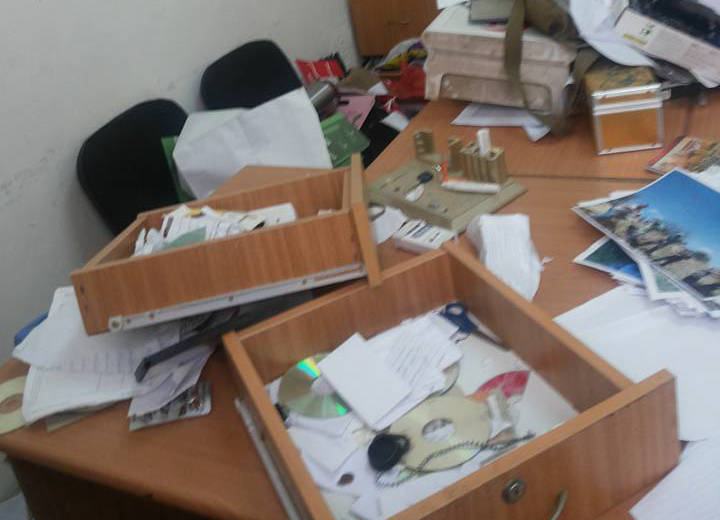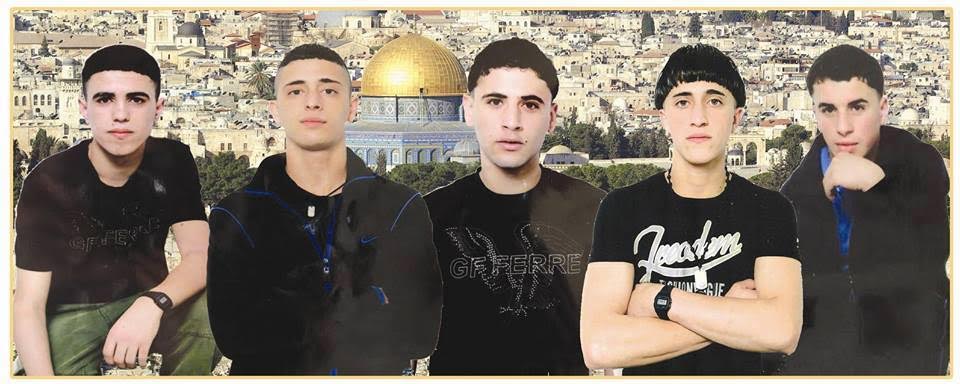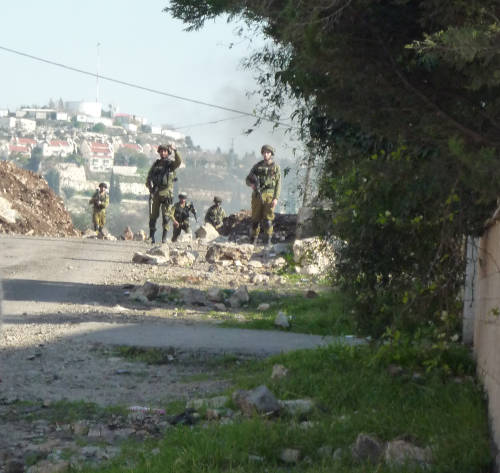Category: Nablus
-
Tanweer cultural centre in Nablus raided at night, equipment stolen and damaged
15th of December, 2015 | International Solidarity Movement, Nablus team | Nablus, occupied Palestine On the night of the 10th of December, the Israeli forces raided the Palestinian cultural Centre Tanweer, near the old city of Nablus, and stole hardwares, wifi keys and a laptop after searching the whole centre. The organisation lost all of…
-
Five Palestinian teens blackmailed into accepting 15 years prison term and exorbitant ‘fines’ for a crime that never happened
December 13th, 2015 | The Hares Boys campaign| Hares, Salfit UPDATE: 05.01.2016 Congratulations! The campaign for the Hares Boys has marked the halfway point by collecting 75944.56 NIS (~US $19314.24). However, we still have a long way before reaching the 150,000 NIS by the deadline of 28 January 2016 in order to avoid having each boy’s…
-
4 protesters shot in Kafr Qaddum demonstration
December 11th, 2015 | International Solidarity Movement, Tulkarm team | Kafr Qaddum, occupied Palestine Friday, December 11th, in Kafr Qaddum, the Israeli occupation forces shot three young men in the legs with tutu, and a fourth youth was injured with a rubber coated steel bullet at a demonstration protesting the road closure. Two illegal Israeli…



